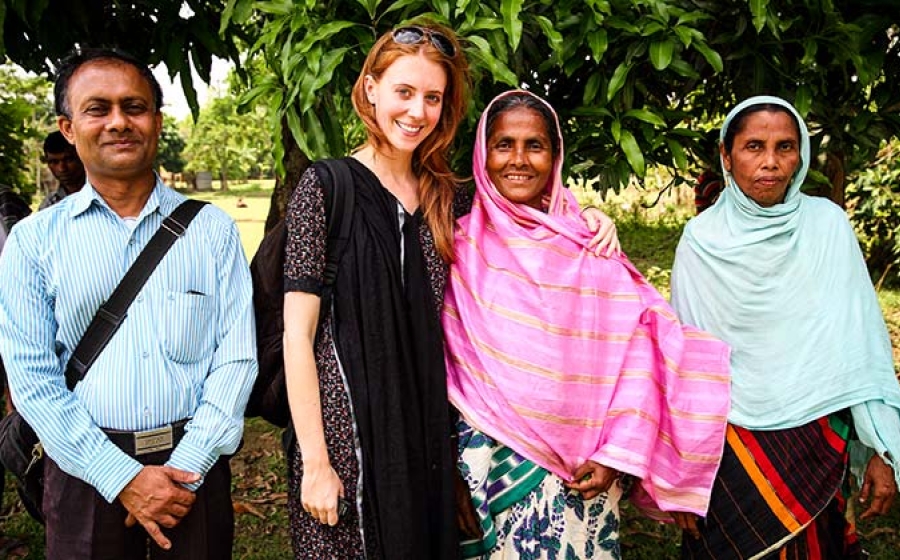Student Stories
Scaling up kangaroo mother care in Bangladesh
by Erin Hunter

Over 80% of women in Bangladesh give birth in their homes and the rate of low birth weight is very high. As an MSPH student in the Johns Hopkins Bloomberg School of Public Health, I was thrilled to work on a qualitative research study exploring existing neonate and infant care practices with a focus on thermal protection, with the aim to identify potential barriers and facilitators to community level implementation of kangaroo mother care. Our team—made up of International Health faculty members working with the International Center for Maternal and Newborn Health—sought to understand how this skin-to-skin care could be adopted in the home setting.
Kangaroo mother care is a WHO-recommended method of caring for small neonates that involves continuous skin-to-skin contact between a baby and its mother’s chest, exclusive breastfeeding, and early discharge from the hospital. When mothers provide kangaroo mother care in health facilities rather than using other warming methods, the practice offers a host of benefits including improved breastfeeding and growth, less hypothermia and infection and it can significantly reduce neonatal mortality.
Village life
Living together in the rural study area allowed me ample time to debrief in the evenings with the data collectors after interviews and focus group discussions were completed for the day. This resulted in a highly efficient data collection period and allowed our study team the opportunity to build great rapport, which staved off burnout. I was blessed to work with such a highly motivated, enthusiastic, and hard-working team of data collectors, and was absolutely thrilled when one of them later enrolled in an MPH program after our study ignited her interest in public health. Although the study period was extremely hectic, we managed to find time away from work to visit some local “celebrities” in a neighboring village—naturally conceived quintuplets!
Scaling up kangaroo mother care across Bangladesh
Now a Sr. Research Program Coordinator in the Department of International Health, I am still living in Bangladesh, coordinating a project with the aim to contribute to the continuing improvement in maternal and child health in the country by building capacity for public health leadership and promoting local best practices. In this position, it has been tremendously encouraging to witness and document the work of LAMB Hospital in northern Bangladesh, currently one of the only facilities in the country successfully implementing kangaroo mother care. As Bangladesh is one of the seven countries selected by Save the Children’s Saving Newborn Lives Program for acceleration of kangaroo mother care, I am excited to see what the next few years hold, and look forward to seeing this method of care truly take root in the country.
